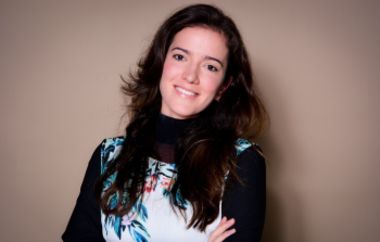PhD Student in International Development at University of Edinburgh, United Kingdom
Research focus: waste, poverty, empowerment, social inclusion, power geometry, circular economy
Tatianna’s research is based on a 7-month-long fieldwork journey that started in one of the biggest dumpsites in Latin America and progressed until the point where PET bottles were repurposed into a new product for the consumer market.
She is currently working as an independent consultant in Brazil providing strategic advice to clients in the public, private, and third sectors on how best to engage with communities and design human-centred solutions for their problems. The last project she was involved in was commissioned by Vale S.A., a multinational mining company, and consisted on an evaluation of its reparation measures following the Brumadinho damn collapse that killed over 250 people and impacted over 120,000 people.
2015 Perfect Storm Scholarship awarded by the Leverhulme Trust
2013 Granted Chevening Scholarship and a Lemann Fellowship
CV as submitted for the Green Talents award (2014):
University of Oxford, United Kingdom
Research focus: inclusive integrated solid waste management recommendations for Brazil
Addressing the challenges for a successful waste management policy in Brazil, Tatianna Mello Pereira da Silva is using a multi-stakeholder analysis and seeks to offer solutions for the most vulnerable of stakeholders: the waste pickers.
With an academic background in Environmental Law and Public Policy, Tatianna is now planning her doctoral studies and is turning her focus to Brazil. In light of the country’s extremely low recycling rate of municipal solid waste (only 4%, as of 2012), the Brazilian government enacted a National Waste Policy in 2010. “The Act established principles, goals and tools related to waste prevention and disposal”, explains Tatianna. “Nonetheless, after more than three years in force, the Act’s primary goals are far from being achieved.” Brazil’s waste generation continues to increase rapidly and only 14% of Brazilians have access to selective waste collection. In her PhD research project, Tatianna therefore aims to “investigate and understand the barriers obstructing the achievement of the waste reduction and recycling goals set by the Act and to develop policy recommendations to address them”.
Within the multi-stakeholder analysis of the situation and in her development of policy recommendations, Tatianna plans to focus primarily on the most vulnerable party in the waste management system: the waste pickers. This is a particularly sensitive issue in Brazil; where around 500 000 people’s livelihoods depend on the resources they are able to pick from waste. Policy initiatives that aim to make Brazil’s waste management system more sustainable often ignore or minimise the social dimension of the problem. Tatianna hopes to change this through her analysis: “Any initiative seeking to tackle the waste problem should not ignore waste pickers; it should rather aim to equip them with the means to enter the formal labour market”, she suggests. The key to addressing this problem is raising awareness of waste management’s social dimension among the relevant stakeholders: policy-makers, researchers and the general public.
The jury was impressed by Tatianna’s commitment to linking environmental policy initiatives to social progress. Her research will be internationally applicable to many emerging economies and middle-income countries in which the problem of waste disposal is an increasingly pressing concern. As she puts it: “In a world of scarce resources, an economic model based on a linear production-consumption-disposal rationale is intrinsically unsustainable. The loop has to be closed.”






